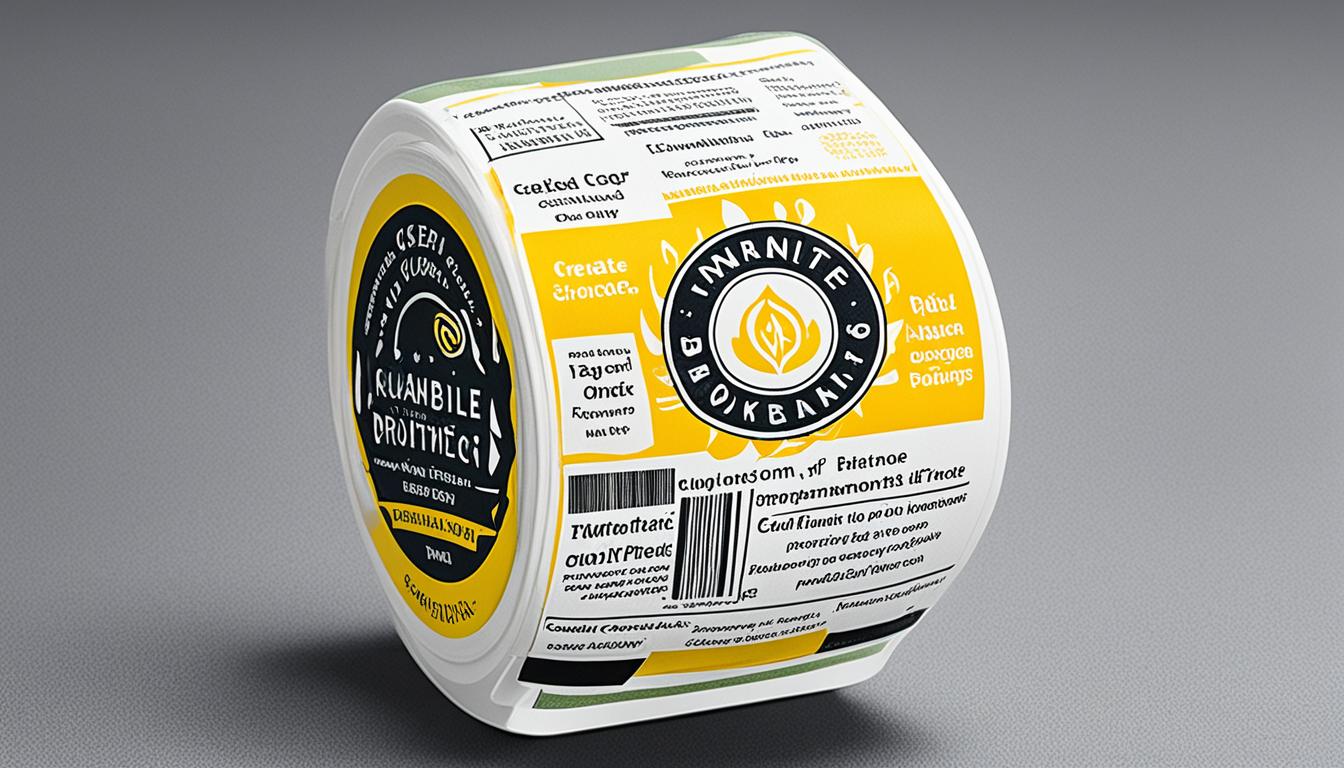Luxury marketing is a specialized field that focuses on selling and promoting high-end goods or services to affluent consumers. It involves using strategic upscale marketing strategies, premium market targeting, and high-end advertising techniques to engage with the exclusive brand promotion and position luxury brands for success.
Unlike traditional marketing, luxury marketing goes beyond selling essential products and taps into the desires and aspirations of consumers who seek pleasure and enjoyment in luxury experiences. Luxury branding aims to create a sense of exclusivity, prestige, and high quality that distinguishes these brands from mainstream offerings.
Key Takeaways
- Luxury marketing involves selling high-end goods or services that provide pleasure and enjoyment.
- It requires specialized upscale marketing strategies, premium market targeting, and high-end advertising techniques.
- Affluent consumer engagement and exclusive brand promotion are crucial to luxury marketing success.
- Luxury brands aim to position themselves as prestigious, exclusive, and synonymous with exceptional quality.
- Luxury marketing relies on luxury brand positioning and luxury market segmentation to effectively reach the desired audience.
The Business of Luxury
In the world of luxury, the business of luxury is a captivating and constantly evolving landscape. The luxury industry encompasses a wide range of high-end brands, from fashion labels to motor cars, hotel resorts to whisky brands. These esteemed brands cater to a discerning, high-end audience, offering products and services that are synonymous with quality, luxury, and exclusivity.
Within the luxury industry, fashion labels occupy a prominent position. Renowned brands such as Chanel, Louis Vuitton, and Gucci are revered for their artistry, craftsmanship, and superb attention to detail. They create exquisite clothing, accessories, and footwear that are coveted by fashion enthusiasts around the globe.
Motor cars also play a vital role in the business of luxury. Prestigious automotive brands like Bentley, Rolls-Royce, and Ferrari are known for their unparalleled engineering, elegant designs, and powerful performance. These luxury cars epitomize opulence and cater to those who seek the ultimate driving experience.
Hotel resorts are another significant sector within the luxury industry. From the iconic Four Seasons and Ritz-Carlton to the exclusive Aman and Banyan Tree, luxury resorts offer impeccable service, breathtaking locations, and unforgettable experiences. They provide a sanctuary for travelers seeking refined luxury and personalized attention.
Whisky brands hold a special place in the hearts of luxury enthusiasts. Names like Macallan, Glenfiddich, and Lagavulin are synonymous with exceptional craftsmanship and rich flavors. These whisky brands cater to connoisseurs who appreciate the artistry and heritage behind every sip.
Overall, the business of luxury thrives on delivering the finest products and services to a high-end audience that seeks excellence, exclusivity, and prestige. Through their dedication to quality, impeccable design, and unwavering commitment to customer satisfaction, luxury brands continue to shape the future of the industry.
| Sector | Examples of Luxury Brands |
|---|---|
| Fashion | Chanel, Louis Vuitton, Gucci |
| Automotive | Bentley, Rolls-Royce, Ferrari |
| Hotels | Four Seasons, Ritz-Carlton, Aman |
| Whisky | Macallan, Glenfiddich, Lagavulin |
The Evolution of Luxury Marketing
The concept of luxury marketing has undergone significant changes over time, primarily driven by the evolving consumer landscape, globalization, and advances in technology. These factors, coupled with the aspirations of affluent consumers and the desire for an idealized lifestyle, have transformed the luxury market into what it is today.
Globalization has played a vital role in the evolution of luxury marketing. It has opened up new markets and created opportunities for luxury brands to reach a broader customer base. The increasing disposable income in emerging markets has fueled the demand for luxury goods, making it a truly global industry. Luxury brands have expanded their operations and established a global presence to cater to these affluent consumers.
Advances in technology have also played a significant role in shaping the luxury market. The rise of e-commerce and digital marketing has made luxury goods more accessible to consumers, eliminating geographical barriers. Affluent consumers can now conveniently browse and purchase luxury products from the comfort of their homes, further driving the growth of the luxury market.
The Changing Consumer Landscape
A notable aspect of the changing consumer landscape is the shift in consumer preferences. Today, affluent consumers are not just interested in owning luxury products; they seek a lifestyle or state of being associated with these brands. Luxury marketing now focuses on selling a dream, an experience, or an idealized lifestyle rather than just a product.
Convenience has emerged as a key driver in luxury marketing, particularly among the younger generation. Luxury brands are leveraging technology to provide seamless and convenient experiences, such as online shopping, personalized services, and exclusive access to events. The digital age has made convenience a top priority for consumers, and luxury brands have adapted accordingly to meet these expectations.
Overall, the evolution of luxury marketing has been shaped by the changing consumer landscape, globalization, advances in technology, and the desires of affluent consumers. As the luxury market continues to evolve, brands will need to stay attuned to these trends and tailor their marketing strategies to cater to the evolving demands and aspirations of their target audience.
Luxury Product Marketing
Luxury product marketing is all about promoting and selling high-end products to a discerning luxury customer. These customers have a taste for the finer things in life and seek out products that offer quality, exclusivity, and a touch of opulence.
When it comes to luxury products, they are not just everyday essentials but rather coveted items that are considered symbols of status and achievement. Owning luxury products is a way for individuals to showcase their success and discerning taste to the world.
One area of luxury product marketing that has seen significant growth is the high-end food and wine industry. People are willing to pay a premium for gourmet ingredients, fine wines, and Michelin-star dining experiences. These culinary indulgences go beyond nourishment and become a way to indulge the senses and create memorable moments.
Furthermore, personal luxury items such as luxury cars, watches, jewelry, and designer handbags are also highly sought after. These products not only provide functionality but also serve as status symbols that signify success, taste, and social standing.
| Product | Description |
|---|---|
| Luxury Cars | Exquisite automobiles that combine performance, craftsmanship, and cutting-edge technology. |
| Watches | Precision timepieces crafted with meticulous attention to detail and often adorned with precious metals and gemstones. |
| Champagne | Premium sparkling wine produced in the Champagne region of France, renowned for its quality and elegance. |
| Designer Handbags | Luxurious handcrafted bags created by prestigious fashion houses, known for their exquisite design and impeccable craftsmanship. |
Luxury product marketing focuses on capturing the attention and desire of the luxury customer by highlighting the unique qualities and features of these products. It utilizes targeted advertising, strategic partnerships, and carefully curated brand experiences to create a sense of exclusivity and desirability.
By understanding the aspirations and motivations of the luxury customer, luxury product marketers can create effective campaigns that resonate with their target audience and drive sales.
Luxury Services
When it comes to indulgence and opulence, luxury services are designed to provide exclusive experiences that go above and beyond expectations. These personalized services cater to a discerning clientele and offer unforgettable moments of pleasure, excitement, and comfort.
One of the most sought-after luxury services is the experience of staying at a luxury resort. These resorts offer an array of amenities and services designed to create a truly lavish getaway. From lavish accommodations to world-class spas, private beaches, and personalized concierge services, luxury resorts ensure an unparalleled experience.
For those looking to make a grand entrance or enjoy VIP treatment, hiring a limousine service is the epitome of luxury. Arriving in style in a chauffeur-driven limousine adds an extra touch of sophistication to any occasion or event.
When it comes to fine dining, nothing compares to the experience of dining at a Michelin-star restaurant. These culinary establishments boast exquisite menus curated by world-renowned chefs, impeccable service, and a sumptuous ambiance that elevates the dining experience to new heights.
Personalized services are at the core of luxury experiences, and hiring a personal butler is the ultimate symbol of luxury. From managing travel arrangements and organizing events to taking care of personal needs, a personal butler provides attentive and discreet service, ensuring that every aspect of a luxury lifestyle is taken care of.
Top Luxury Services
| Luxury Service | Description |
|---|---|
| Luxury Resorts | Exclusive accommodations, world-class amenities, personalized concierge services. |
| Limousine Services | Chauffeur-driven luxury vehicles for special occasions or leisurely travel. |
| Michelin-star Restaurants | Exquisite dining experiences curated by renowned chefs. |
| Personal Butlers | Dedicated personal assistants for a seamless luxury lifestyle. |
These luxury services create memorable experiences, tailored to the desires and preferences of high-end clientele. Whether it’s a lavish resort stay, an indulgent meal, or the convenience of a personal butler, luxury services offer a taste of the extraordinary.
Luxury Brands
In the world of luxury, there are certain brands that stand out for their high-quality, exclusive offerings. These brands have become synonymous with prestige, sophistication, and the epitome of luxury itself. Found across various sectors such as fashion, jewelry, hospitality, and automotive, luxury brands cater to affluent consumers who appreciate the finer things in life.
Luxury brands are renowned for their commitment to excellence and their unwavering dedication to delivering the utmost in quality. Their products and services are crafted with meticulous attention to detail, using the finest materials and the expertise of skilled craftsmen. This commitment to high-quality is what sets luxury brands apart in the market.
At the core of luxury brands is their exclusivity. They create a sense of rarity and scarcity that appeals to the discerning consumer. Limited production quantities, unique designs, and stringent selection processes ensure that the products and services offered by luxury brands are truly special and not easily accessible to everyone.
It is this exclusivity that gives luxury brands their prestigious reputation. Owning a luxury product or experiencing a luxury service is a symbol of status and accomplishment. Luxury brands have built a legacy around their name, becoming synonymous with success, refinement, and a life of luxury.
Examples of luxury brands include Chanel, known for its iconic fashion and timeless elegance; Cartier, renowned for its exquisite jewelry and timepieces; Four Seasons, a prestigious chain of luxury hotels and resorts; Bentley, the epitome of luxury in the automotive industry; and Bollinger, a distinguished champagne house that embodies celebration and sophistication.
| Brand | Sector |
|---|---|
| Chanel | Fashion |
| Cartier | Jewelry |
| Four Seasons | Hospitality |
| Bentley | Automotive |
| Bollinger | Champagne |
Luxury Marketing Mix
Luxury marketing requires a unique approach to the marketing mix. It goes beyond simply selling a product and aims to create the highest brand value by crafting a dream or lifestyle goal for the target audience. The luxury marketing mix includes several essential elements that contribute to the overall success of luxury brand strategies.
Product
The product is the core element of the luxury marketing mix. Luxury brands focus on creating high-spec, top-quality products that meet the desires and expectations of affluent consumers. These products are crafted with attention to detail, using the finest materials and incorporating exquisite craftsmanship. The luxury product should evoke a sense of exclusivity and reflect the brand’s commitment to excellence.
Price
Pricing is a critical aspect of luxury marketing. Luxury brands set their prices higher to reflect the high quality and exclusivity of their products. The price tag on a luxury item not only covers the production cost but also adds a premium to maintain its luxurious status. The higher price contributes to the perceived value of the product and plays a role in attracting the target market of affluent consumers who value exclusivity and prestige.
Place
Place refers to the distribution and availability of luxury products. Luxury brands strategically limit the availability of their products to create a sense of scarcity and exclusivity. This could involve partnerships with select retailers, showcasing products in luxury boutiques, or limited edition releases. By carefully selecting distribution channels, luxury brands ensure that their products are accessible to their target audience while maintaining an aura of luxury and sophistication.
Promotion
The promotion of luxury brands requires a more artistic, ethereal, and subtle approach compared to traditional marketing. Luxury brands focus on creating captivating and immersive brand experiences that resonate with their target audience. This can include sophisticated advertising campaigns, storytelling through visual content, and collaborations with renowned artists or designers. Social media platforms also play a significant role in luxury brand promotion, allowing brands to engage with their audience and showcase their unique offering.
Overall, the luxury marketing mix encompasses the product, price, place, and promotion strategies that luxury brands utilize to create a distinct brand identity, appeal to affluent consumers, and differentiate themselves in the luxury market. By carefully crafting these elements, luxury brands can effectively communicate the value and desirability of their products or services.
Challenges of Luxury Marketing
The luxury marketing industry faces several challenges in today’s ever-changing consumer landscape. With consumers becoming more conscious about sustainability and corporate social responsibility, luxury brands need to adapt and improve their practices to meet these expectations. Incorporating sustainable materials, ethical sourcing, and eco-friendly production processes are essential for luxury brands to align with the growing demand for sustainable luxury products.
In addition to sustainability, luxury brands also need to strike a delicate balance between exclusivity and accessibility in the digital age. While maintaining an aura of exclusivity is crucial to luxury brand positioning, the rise of e-commerce and digital marketing has made it necessary for luxury brands to expand their online presence and make their products accessible to a wider audience.
However, meeting consumer expectations for convenience and the ability to purchase luxury goods online presents unique challenges for luxury brand marketing. Luxury brands must ensure that the online shopping experience reflects the exclusivity and luxury that consumers expect, while providing a seamless and convenient purchasing process.
By embracing digital marketing strategies, luxury brands can leverage social media platforms to engage with their target audience and create a strong online presence. Influencer collaborations, engaging content, and immersive experiences can help luxury brands build a loyal customer base and enhance brand visibility in the digital space.
In summary, the challenges of luxury marketing encompass sustainability, corporate social responsibility, convenience, e-commerce, and digital marketing. Luxury brands must navigate these challenges and adapt their strategies to meet evolving consumer expectations while remaining true to their brand identities and maintaining their market differentiation.
Conclusion
Luxury marketing is a specialized field that requires unique strategies to attract and engage affluent consumers. To succeed in this competitive market, businesses must focus on creating a strong brand identity and differentiation. By understanding the desires and lifestyles of luxury consumers, companies can tailor their marketing efforts to resonate with this target audience.
Implementing effective luxury marketing strategies is crucial for capturing the attention and loyalty of affluent consumers. From crafting aspirational brand stories to utilizing exclusive promotional tactics, businesses can create a sense of desire and exclusivity around their products or services.
Market differentiation is key in luxury marketing, as it allows brands to stand out and position themselves as leaders in their respective industries. By offering unique features, exceptional quality, and personalized experiences, luxury brands can create a strong competitive advantage.
In conclusion, luxury marketing requires a deep understanding of the affluent consumer mindset, meticulous attention to brand identity, and effective market differentiation. By harnessing these strategies, businesses can thrive in the world of luxury and successfully capture the attention and loyalty of high-end consumers.




